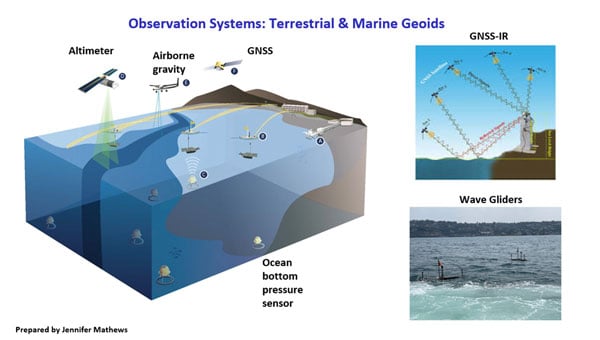Portrait of Galileo: European groups say constellation is ready for service
Spokespersons from the European Commission, the European Space Agency and the European GNSS Agency (GSA) built a portrait of Galileo at the ION GNNS+ conference of a satellite constellation ready to step upon the world stage. Meanwhile, four new satellites are scheduled to launch aboard a single Ariane rocket on Nov. 17, leading to declaration of initial services by the end of the year.
With 14 satellites in orbit, 12 ordered and four on the launchpad, system operators feel confident in predicting initial operational capability by the end of this year. They already have their eyes set on additional service distinctions driven by emerging new requirement from user communities:
- Authentication, for applications requiring trusted position and timing information; a key feature to enable new types of commercial applications such as pay-as-you-drive car insurance, road user charging (highway tolling) and access to mobile content
- A robust timing service
- Advanced receiver autonomous integrity monitoring (ARAIM)
- Emergency warning services
- A Galileo regional service
- Ionosphere prediction service
- SBAS authentication
Key areas identified to drive Galileo evolution included timing for 5G telecoms, digital video broadcasting and autonomous vehicles.
GNSS will increasingly be used not as a sole localization solution but deeply integrated with several positioning networks and sensors to work across an array of contexts, according to the several European experts. However, despite growing alternative solutions, GNSS will remain core as the most cost-effective global positioning technology, especially for outdoor location information and larger scale applications.
Looking at the future, for the majority of mass-market applications, an accuracy of a few meters is sufficient, but key strategic users will need (some already need) better performance that must be satisfied. Galileo evolution has to offer enhanced performance, enabling new and strategic applications, to remain at the center of the positioning and timing market.
Galileo’s evolutionary targets to improve in the future were listed as: a ranging accuracy between 2 and 5 times that to be declared at Galileo FOC (in 2020?); position accuracy down to sub-meter level; timing accuracy increased by two times over Galileo FOC; better support of spoofed users; enhanced authentication (nav message authentication) and anti-replay.
New Operations Center in Spain. The European GNSS Agency (GSA) is gearing up to assume its operational role for Galileo in early 2017. During the summer the GSA formally accepted their Loyola de Palacio facility in Madrid, Spain that houses the European GNSS Service Centre (GSC).
GSA already oversees the operation and service provision for the European Geostationary Navigation Overlay Service (EGNOS) (since 2015) along with managing the security accreditation and general security provision for both programmes.
Since 2013, the core team at GSC has been providing limited services and working as a precursor to GSC v1. Its key work includes supporting the lead-up to Galileo Initial Services provision, along with operating the GSC Helpdesk, disseminating orbital products to the Search and Rescue (SAR) community, supporting GNSS-related research and industrial activity and monitoring user satisfaction. Once operational, GSC v1 will be connected to the Galileo core system, thus enabling the long anticipated Commercial Service. This service is expected to enter operations by mid-2017.
Galileo Hackathon in Berlin. The GSA invites coders, app developers and other interested parties to a two-day event in early November, the Galileo Hackathon. “Be one of the first to use Galileo!” The online invitation seeks those who want to shape the future of Location-Based Services (LBS) and Geo-IoT to become pioneer developers, showcase their skills, connect with the Geo-IoT app-dev community, and win prizes. November 3–4 in Berlin.

















Follow Us